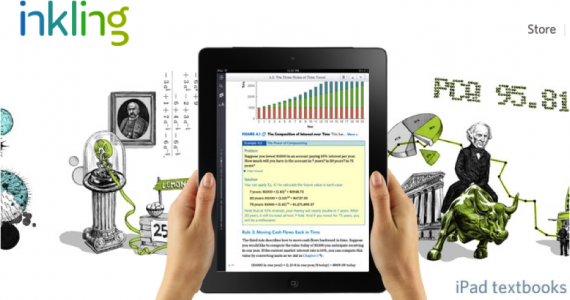I was inspired just reading these visions of mobile learning, collected by T.H.E. Journal, which is all about transforming education through technology. Some of them make our current modes of learning seem quaint by comparison. Hang on to your memories of text books and pop quizzes at wooden desks — they’ll be as outdated as your VCR.
These are some of my favorites:
The mobile learning device of the future won’t be a separate piece of equipment. Rather, mobile learning in the future will be an active part of the student’s world. Smartphones, televisions, tablets, in-car telematics and even household appliances will always be connected to the student’s academic life. Everything the student does, and everywhere the student interacts, will become a learning opportunity. The only examples given to a student will be real-world examples, because they will always be plugged in, always learning. The future of learning isn’t bound to a mobile device; the future of learning is mobile.
Caleb Jones
Student experience advocate
Florida Virtual School
Orlando, FL
The “Ubique” mobile device is credit card-sized, waterproof, shock-resistant, and indestructible, with long battery life and solar power capability. It will operate all programs, regardless of operating system, and will connect to the internet anywhere on Earth via providers working under a global service umbrella. Service providers and product manufacturers will provide the device and service free to students and educational institutions in exchange for tax benefits and concessions. In addition to operating standard learning programs, “Ubique” will monitor physical health status and warn users of potential health issues through various input capabilities, such as blood pressure, blood, and diet.
Rhonda Leduc
Graduate student
University of Illinois
Urbana-Champaign, IL
Many years down the road, I envision a device that isn’t mobile per se, but located in every classroom. I’ll call it the iDesk. Imagine a glass-top student desk that is like a larger version of an iPad–a touchscreen computer desk connected via WiFi to a school’s network. Using cloud computing, students would sit down and log into their desks, where they can respond to teacher prompts, complete and submit work, and connect with other students–all without needing additional computers or mobile devices. As smartphones evolve more into full-function computers, students’ mobile devices can be linked to the iDesk. An expensive proposition, and this future is many years away, but that is my vision.
Kyle Ross
Assistant principal, education services
Chaparral High School
Scottsdale, AZ
Read the rest here.
Incoming search terms:
- caleb jones flvs
- future of mobile learning
- Student desks IDESK
- rhonda leduc
- mobile learning is future learning
- mobile student 2020
- notes about mobile learning is future learning
- caleb jones florida virtual school
- upcoming mobile 2020
- vision 2020 in higher education

